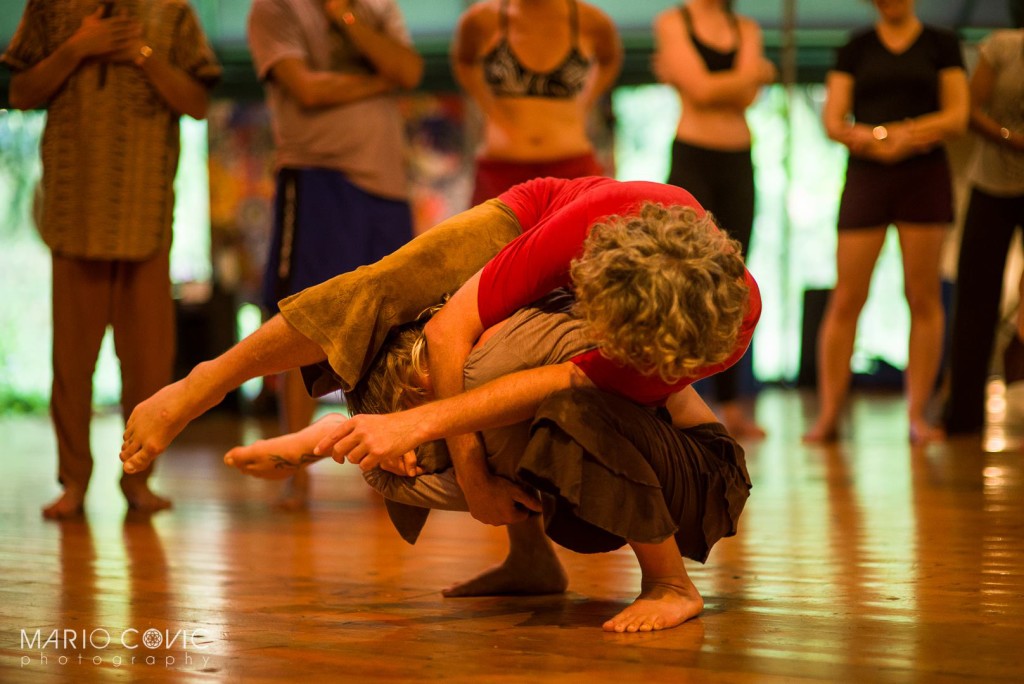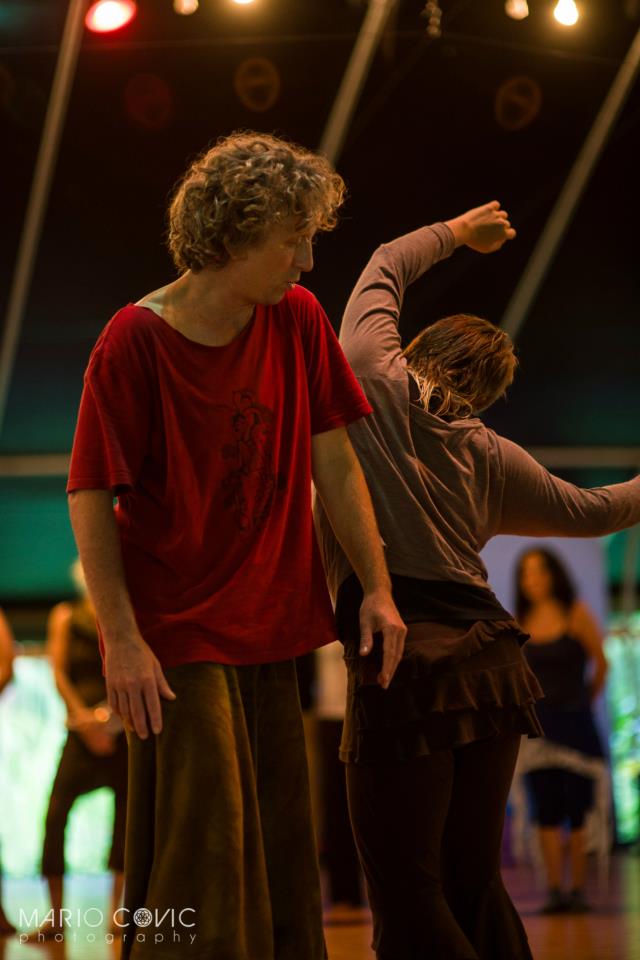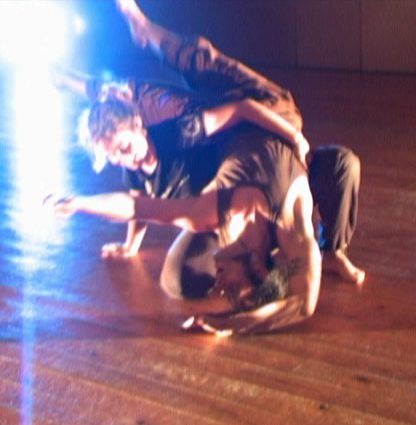Human Contact Project
The Human Contact Project explores a reframing of the art of contact improvisation… diving into subtle awareness of the physics, bio-mechanics, and states of two bodies in contact combined with an open sense of the poetics of physicality. We explore the improvisational play of human contact: developing deeper sensitivity to physical detail and a sense of the poetic play of experienced meaning in movement and art-making.
The workshops will be equal parts technical functional awareness work and artistic investigations, developing tools and perspectives for distilling and diversifying our explorations of physical contact.
We look at our sense of meaning in movement… a sense of the poetics of interaction, whether in kinaesthetics and physics or in the poetry of sensation, emotion, and experienced image. We play with holding onto themes and frames of reference in the dance in a sense of collaborative art-making that moves us literally and metaphorically. The poetry is the poetry of inner experience shaped by and interlocking with the physical. I collaborate with you on the poetry of your experience. You collaborate with me in the poem which is mine. It is both real and kind of interactive theater. While embracing the practices that have developed through contact improvisation, we give ourselves permission to ‘start over’ with our investigation and not confine ourselves to previously encountered answers to our questions and directions of curiosity.
A primary tool in this exploration is the distilling of modes or foci of investigation. By narrowing our focus and allowing this specificity to reshape our whole body-use, we find a freedom to explore territories that habit and daily social impulse prevent us from discovering. For example, by holding our attention on specific qualities of sensation of skin or fascia or by narrowing our movement to specific ranges of speed, this restriction launches us into new territories that freely wandering attention would otherwise never allow. This allows for a more nuanced interplay of deliberate intention and abandon in finding more meaningful dances.
This material borrows from somatic psychology approaches and extensively from Body Research’s work in interactive performance in works like Axolotl, Proximity, and Tocame.
The Passive Sequencing work: A Release Approach to Contact Improvisation
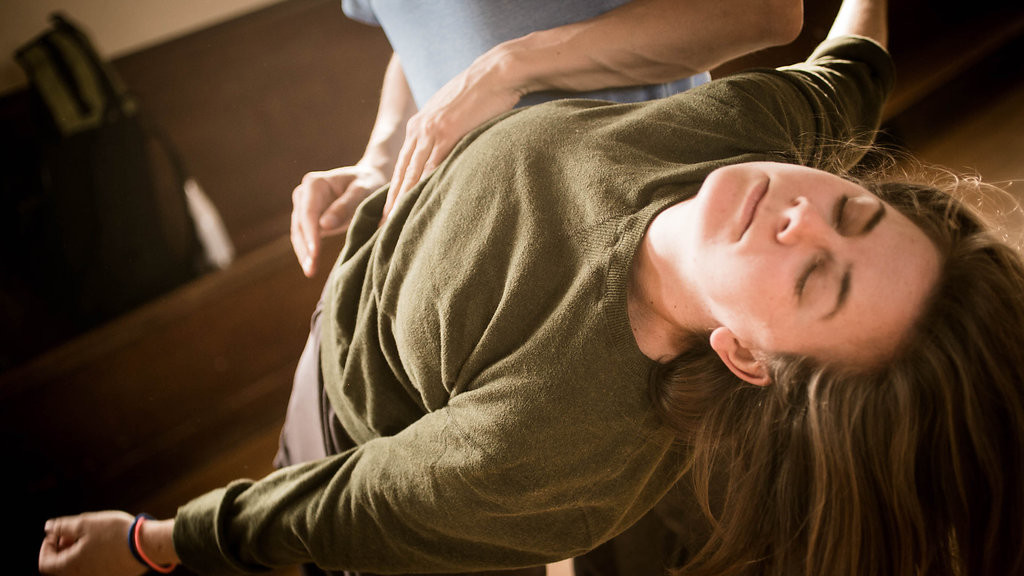 Developed out of principles from release technique, Alexander technique, and practices from the internal martial arts, The Passive Sequencing work cultivates finer awareness of our own body use and how we affect the state and body-use of our partner. We increase moment-to-moment functional awareness through tuning into proprioception – our physical experience of the body – allowing for greater ease, speed, and power. Through more sophisticated movement intelligence (as opposed to “muscling through”) we find a more dynamic perception in time, informed by our accumulated skills but less hindered by attachment to physical habit. Through releasing patterns of hyper-control, we find dense, rich awareness of and participation in human interaction.
Developed out of principles from release technique, Alexander technique, and practices from the internal martial arts, The Passive Sequencing work cultivates finer awareness of our own body use and how we affect the state and body-use of our partner. We increase moment-to-moment functional awareness through tuning into proprioception – our physical experience of the body – allowing for greater ease, speed, and power. Through more sophisticated movement intelligence (as opposed to “muscling through”) we find a more dynamic perception in time, informed by our accumulated skills but less hindered by attachment to physical habit. Through releasing patterns of hyper-control, we find dense, rich awareness of and participation in human interaction.
More links …
Bio: Karl Frost (California) has been teaching and performing contact and related work in body-based creative process for the last 30 years and is the director of Body Research Physical Theater.(www.bodyresearch.org). He is recognized for his dynamic and articulate movement style, his rigor in physical research and teaching, and for the edge-pushing nature of his work in both practice and performance. His work, influenced by studies in contemporary release technique, Alexander technique, somatic psychology, and martial arts, has been showcased internationally His performance work takes the body and emotionally and physically felt experience as their reference points, often framed in highly interactive postdramatic installation. 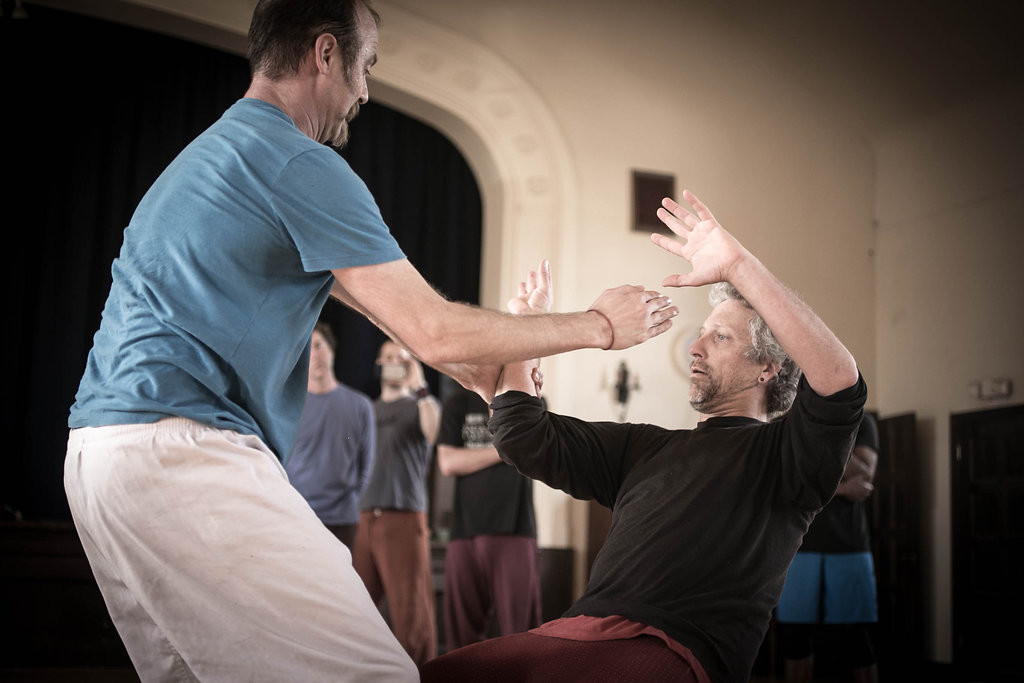 He is also an academic, with an MFA in Dramatic Arts and a PhD in Human Ecology, has collaborated in the Cultural Evolution Lab (University of California, Davis), and is currently (2018-2020) working at the Max Planck Institute for Evolutionary Anthropology in Leipzig, Germany, Department of Human Behavior, Ecology, and Culture.
He is also an academic, with an MFA in Dramatic Arts and a PhD in Human Ecology, has collaborated in the Cultural Evolution Lab (University of California, Davis), and is currently (2018-2020) working at the Max Planck Institute for Evolutionary Anthropology in Leipzig, Germany, Department of Human Behavior, Ecology, and Culture.
